Student Blog
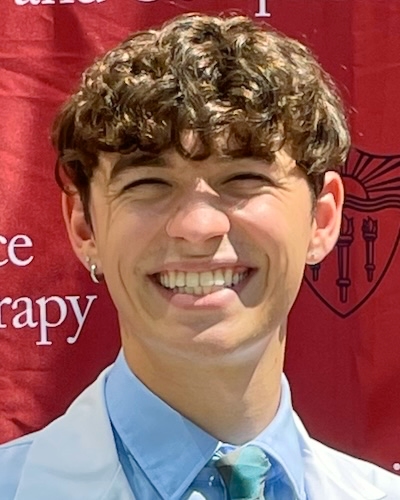
Working in College Is Not One Size Fits All ⟩
July 18, 2024, by Mason
Getting Involved Life Hacks School/Life Balance
Throughout my undergraduate and graduate education at USC, I have always had some form of job, and these were often funded by federal work-study. Federal Work Study is a government-funded student aid program that students may be eligible to receive depending on their financial situation as governed by the yearly FAFSA. The full ins and outs of the program can be a bit confusing, but to simplify it, if a student is awarded federal work-study, the government will give an employer money to pay your wage and to incentivize the hiring of you as a worker. In my personal experience, having federal work-study was extremely helpful as an undergraduate student, as many of the on-campus jobs such as working at the library, bookstore, etc. would be much more likely to hire a student with a federal work-study award. That is not to say that there are no jobs for those without this distinction. Many of my close friends and even myself during the years I did not receive this award were still able to find great employment opportunities and jobs that were flexible enough to accommodate a college student’s scheduling needs. The key takeaway from this though is that federal work-study can be a great opportunity and tool in finding employment during college, so make sure to remember to fill out your FAFSA accurately each year and not to overlook the award in your financial aid package.
Now on a more personal note, I’d love to talk about my experience so far as a working college student. I was fortunate to be raised in a very hard-working family, where both my parents worked full-time jobs while raising my two sisters and me. While my parents were working hard in their careers, my sisters and I were taken care of by my Nonno (grandfather). My Nonno immigrated to America from Sicily when he was just 19 years old and it is from him that I owe my work ethic across all of the jobs I have worked so far. No matter what was going on in my life, my Nonno always raised me to be a hard worker. He taught me that if you wanted something in life, that it was your responsibility to work hard to achieve it, and that any aspiration no matter how big was achievable with hard work & determination.
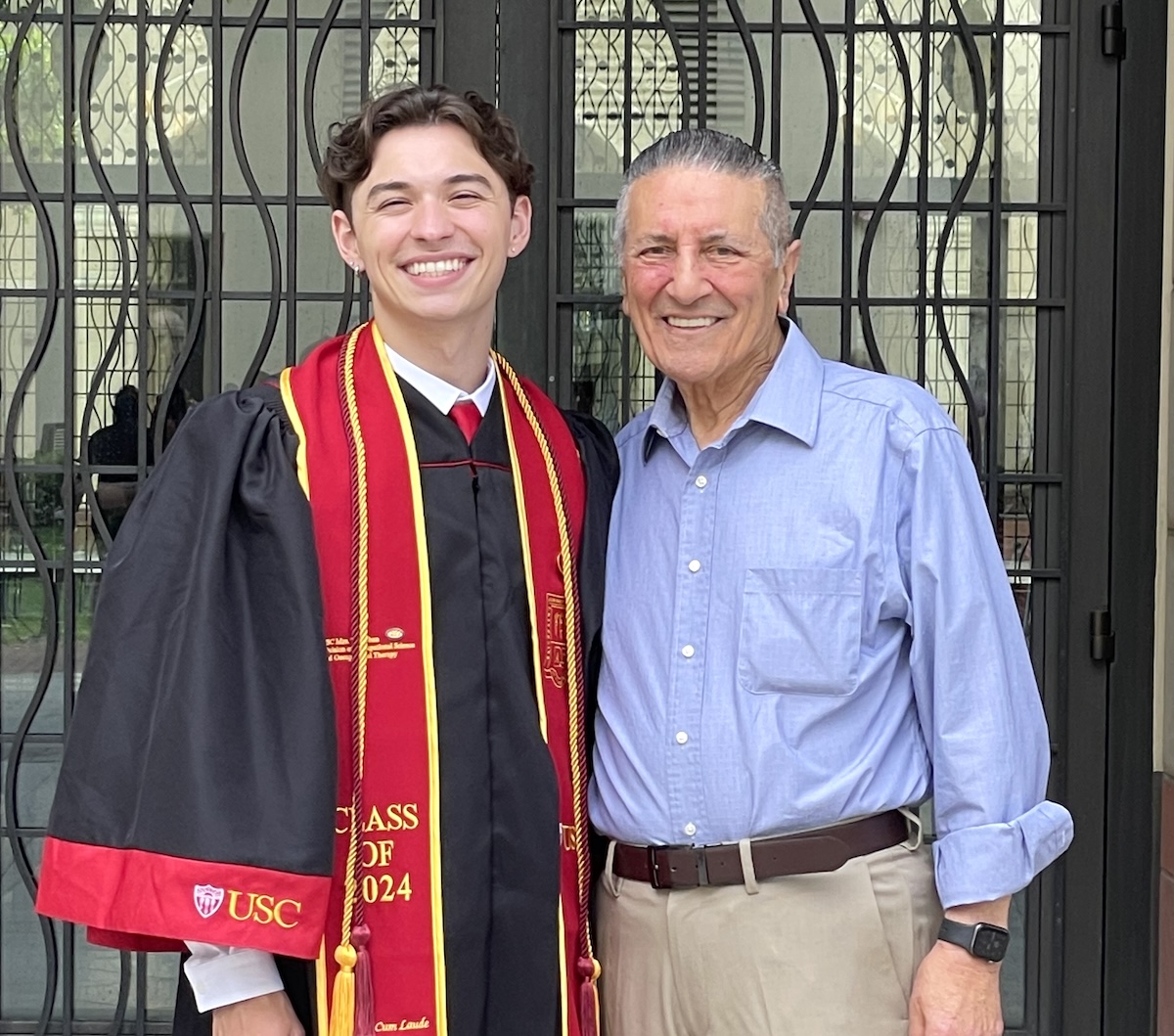
Mason & Nonno at USC graduation
I have worked many jobs in my life such as being a tutor, a beach lifeguard, a resident assistant, and a campus tour guide, and now I enjoy interacting with my community through blogs like this as a Chan student ambassador. For me, work has always brought me a sense of meaning and purpose. The idea of getting a job and working during college was never really a question in my mind, rather, it was more of an understanding I had made with myself to continue to work hard towards my goals. Students choose to work in college for a multitude of reasons, many work hard to pay for things like books, food, and rent. Some students choose to work so that they can have money to support themselves in meaningful activities like sports, exploring LA, or getting dinner with their friends. Finally, many students choose to work because having a job helps them derive meaning and purpose with their time in college. I have often found that people do not simply fall into one of these roles, rather, most students I know tackle every one of these goals simultaneously.
Working in college is not one size fits all. Each and every one of us is a different person, with different goals & aspirations, different finances, and importantly, different needs to succeed during our time here. So when considering whether or not to work during your academic pursuits the best advice I would give is to be honest with yourself and to think about what you need to succeed. Choosing not to work is just as meaningful as choosing to work if a job would jeopardize your success as a student. My advice, be open to trying new things! If a job doesn’t work out you can always stop and you can always try something else instead. Working in college is not perfect for everyone, but it can be a fantastic opportunity to set yourself up for financial, professional, and personal success in your future life and career.
That’s all for now, and remember to Fight On!
⋯
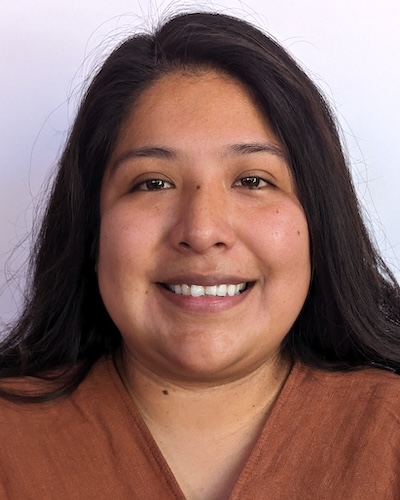
Why did I decide to become a student ambassador? ⟩
May 30, 2024, by Patricia
I love working and communicating with prospective students, organizations, and schools that are interested in higher education. During my undergraduate studies at CSULA I had the opportunity to work as a student ambassador. I had the opportunity to work with high school students that resided in the east area of LA to apply and help them with their on-boarding process to CSULA, attend college fairs, support campus events, and more! I loved my role as an ambassador because I got to know and learn from everyone, but most importantly, develop relationships with students. As a Latina and first-generation student, I understood a lot of what students expressed and had concerns about. For example, ‘how to pay for college?’, ‘what do I want to major in?’, ‘what is graduate school?’, and the list goes on. Five years after receiving my B.A. those questions and unknowns were still applicable when I searched and applied to graduate school. I became a USC student ambassador to be an asset to you all. I am more than glad to help you in any way I can by sharing what I know, what I wish I knew before starting grad school, and more. If you are interested in learning more about Occupational Therapy, the USC Chan Division of Occupational Science and Occupational Therapy, or just simply wanting to chat, please reach out.
⋯
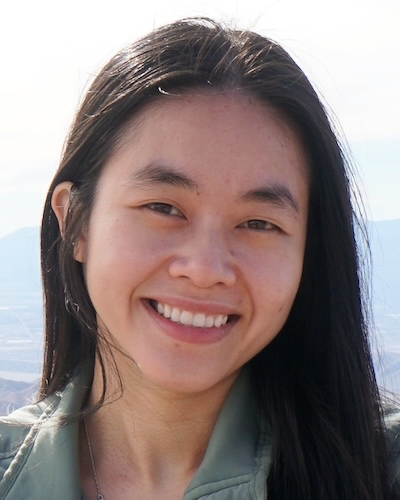
My Vietnamese Immigrant Dad Doesn’t Know What I’m in School For ⟩
May 29, 2024, by Dana
Diversity First-Gen International
Growing up in a Vietnamese immigrant family, there were always high expectations of my siblings and me to get a career that is well-known. After high school, I knew I wanted to pursue occupational therapy, but because it was not a common major nor was it something my dad knew about, I decided to major in Psychology because it was a study that I was actually able to translate to my dad. Because it is a well-known field of study, it was expected that I would continue with Psychology in higher education, and with that, my dad had ingrained that I was going to get a doctorate in Psychology. He was telling my extended family and everyone he knew that that was what I was pursuing. However, when I found out that he was telling people that, I tried to explain and translate that I am going to school for occupational therapy, but there was no direct translation for occupation besides the connotation of it being a job. While there is translation for therapy in Vietnamese, it is not equivalent to what OT actually is.
What’s baffling to me is that there is a direct translation for physical therapy in Vietnamese which creates a perceived upper hand to occupational therapy (we can’t get a break from being referred to as PT even in different languages). So, when I was explaining OT to my dad again, I had to use PT in Vietnamese as a base term to describe OT, how there’s an overlap but it’s still different from one another. It does not give OT the recognition they deserve in my mother tongue, but that was the best I could do. But because my dad still didn’t fully understand it, he continued telling people that I am getting a PsyD…
Not until I took OT 519: Theoretical Foundations of Occupational Science and Occupational Therapy during my first semester of the Entry-Level OTD program did I venture on the idea of occupational therapy around the globe. Through extensive discussions and reflections on the definitions of occupational therapy around the world, there was that connection that I was not the only one who couldn’t translate the profession into their mother tongue. In class, we discussed the possibility of a universal definition for the term “occupation”, however, it is almost impossible to be translated with one meaning, and it cannot be applied the same way in other cultures. It can be challenging to find words that precisely convey the true meaning of certain English words. In other countries, the word occupation holds different meanings and significance, so it would be difficult to label occupation as having just one definition. However, without the understanding of this term there is a struggle to create relevance for the OT profession in other cultures.
Looking into my motherland of Vietnam, therapeutic professions are still very limited over there due to lack of understanding of healthcare services besides the main medical care. In addition, I grew up in a rural area of Vietnam where access to any healthcare was very miniscule, with the closest hospital being over an hour away, so the idea of having any other forms of healthcare was not relevant in my family. I do hope that in the future, I can spread some awareness of occupational therapy by having an accurate translation of the profession and show its importance to my family and the community.
⋯
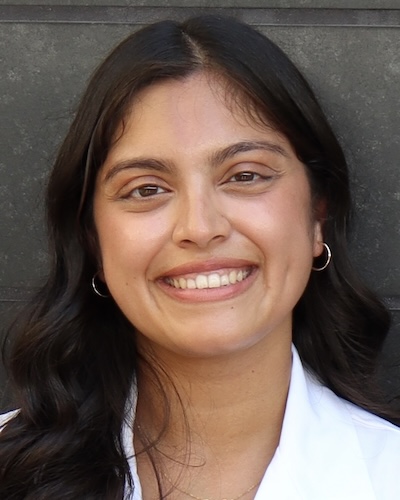
Harmony in Hustle: Balancing Workload and Well-Being ⟩
May 24, 2024, by Shivani
Before starting grad school, I was told how easy it can be to become caught up in the workload and sacrifice self-care and your social life. I was terrified to start grad school because I wasn’t sure what my social life was going to look like. Would I have time to see my family? Would I have time to hang out with my friends? Would I have time to go to the gym? I really wished someone would give me a direct answer to my questions, but deep down, I knew that everyone has their respective ways of managing their schedules so creating a stable school/life balance would only come through my efforts. It wasn’t until I actually started grad school that I realized that creating a school/life balance was actually possible. Having gone through 2 semesters of the Entry-Level Doctorate program, I feel as though I’ve finally gotten the hang of ensuring that I place equal importance on school and my life outside of school. Here are some things I implemented and some takeaways that I hope can be helpful for you:
1. Create a schedule for yourself: Once I started school, I realized how I thrive off of scheduling. If I plan out every aspect of my day, I’ve found that I’m more productive. At the beginning of the Fall semester, I created a Google Calendar to help develop my daily routine. Alongside inputting my class schedule, I included time for homework, free time, going to the gym, meals, and completing any chores. While this may sound extreme, knowing what I was going to be doing almost every hour of the day made prioritizing school and my life outside of the classroom a lot easier.
2. Study outside of your home environment: Within the first couple of weeks of school, I quickly recognized that I couldn’t study in my apartment. I found myself easily distracted and spent countless hours scrolling through TikTok and other social media platforms. I began experimenting with different study spaces and ultimately found that I work best at the Currie Hall academic center or a coffee shop. I discovered that working outside of my home environment allows me to separate home and school. To expand, my motivation for getting my work done is to go back home, relax, and maybe even watch my favorite TV show or movie. It isn’t a secret that grad school can lead to feeling overwhelmed and stressed. With that in mind, working outside of my home environment allows me to be productive while preventing me from bringing any negative feelings into my home. My home is my safe space, and as a grad student, having that space makes my school/life balance easier to maintain.
3. Create your support system: An aspect of the program that I really like is the cohort system. Being placed in a group with approximately 40 students gave me the space to form genuine friendships with those around me. Within the first couple months of the semester, my closest friendships within the program were developed. We sit together at lunch, hang out after school, and also meet on our days off to study together. Having this solid support system has made each semester more memorable, fun, and less overwhelming. My friends within the program have played a significant role in developing my school/life balance, as we make time to do things outside of studying. To expand, study sessions also consist of various occupations, such as taking walks, trying new coffee shops, or rewarding ourselves with food/dessert. Integrating fun within our group study sessions has not only allowed us to enhance our productivity, but has also allowed us to create memorable moments. I’m so lucky to have been able to find friends who not only support and challenge me academically but also are there for me in almost every other aspect of my life. While grad school can be tough at times, don’t forget that these may be some of the best moments of your life, so be sure to make the most of it!
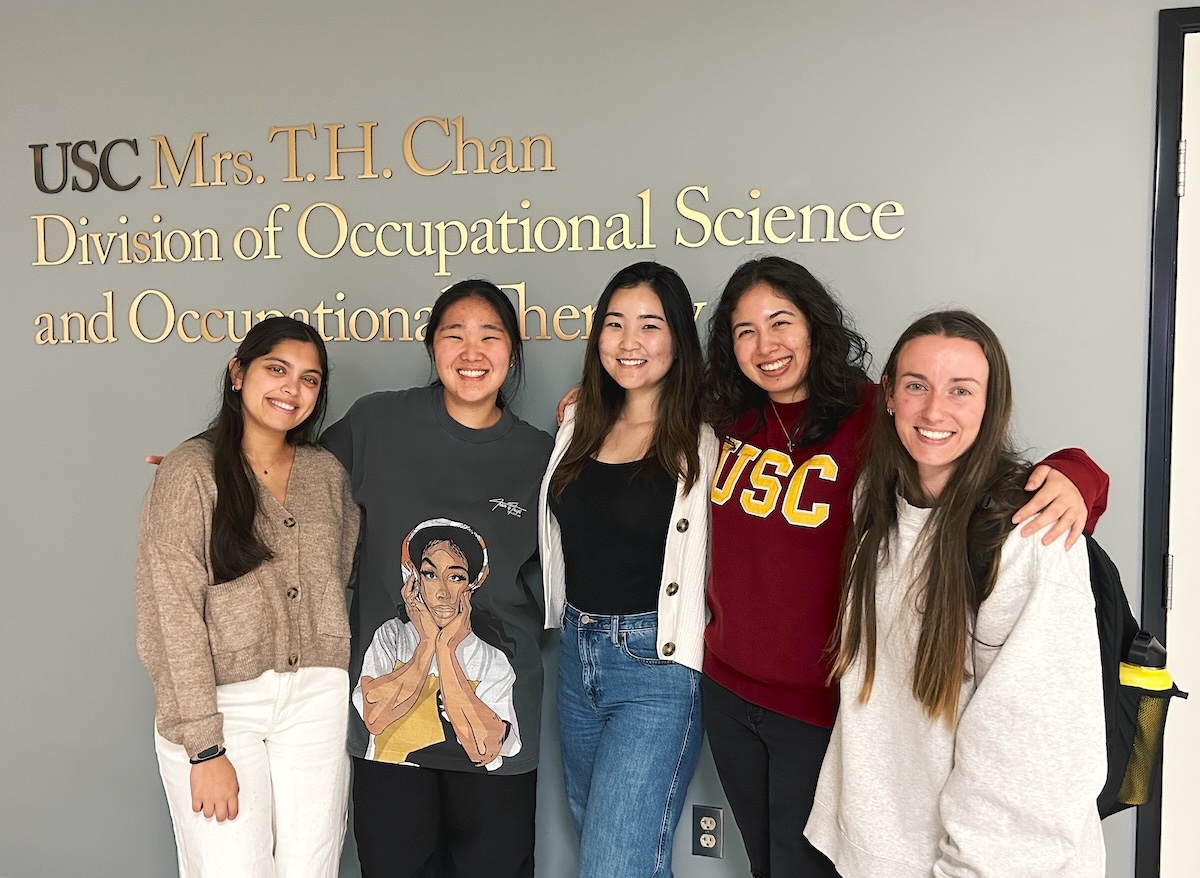
Shoutout to my beautiful friends in the program!
There are so many other takeaways I’ve gathered throughout my grad school experience thus far. To not make this a novel, I will keep it short and say that I’ve learned that it’s okay to take breaks and to prioritize yourself at times. A question I’ve asked myself multiple times is — How are you going to emphasize occupational balance as a future OT if you can’t implement it yourself? My advice to you would be: Don’t be so hard on yourself, take things one day at a time, implement the tactics that work best for you, and soak in every moment of this experience because it only comes once.
If you have any questions, please don’t hesitate to reach out! I’m here for you, and we are on this ride together 😊 ! Fight On <3
⋯

The Transcontinental Bachelor’s to Doctorate Student ⟩
May 24, 2024, by Mason
If you asked the average 17-year-old kid if they wanted to commit to a 6+ year program and move across the entire country they would probably look at you like you are crazy. This was the exact reaction I received when I told my peers, teachers, and even family members that I had decided to commit to USC Chan’s Accelerated Bachelor’s to Doctorate program as a senior in high school. Of the many concerns that people had around me, the biggest question people asked me was “Are you sure this is what you want to do with your life?” I remember that 17-year-old me would always get so bothered by this question, I couldn’t possibly understand why the people around me had so many concerns about me going into this program. Looking back on these memories almost 4 years later, as a more mature and grown person, I can say that I finally understand why people had these concerns. Choosing to go to college is one of the biggest decisions that people will make in their lives. It is an opportunity that will shape your career and your opportunities, and most importantly it will shape you into a hardworking adult capable of building a life for yourself. So, it’s understandable why those around me were hesitant that I made this decision so early on and so young. However, let me tell you a little bit more about the transcontinental Bachelor’s to Doctorate student and why after 4 years I am still just as passionate, driven, and heart set on becoming the best OT I can be.
I grew up in Sandy Hook, CT, a small east coast town that for most of my childhood life you would probably have never heard about. That is until December 14, 2012, when my town was victim to a historic school shooting that rocked the nation. Although the lived experience of this tragedy is not my story to tell, what I will share is the power and passion of the community I grew up in. I grew up in a town of resilience, made up of families, educators, and activists who set out to better the world around them. In the face of the greatest tragedy one could experience, I witnessed the greatest display of humanity and community that my town could offer. Even now, almost 3,000 miles away, I still remember these values of kindness and community and let them guide my actions.
My mother is an occupational therapist who works in the pediatric setting. Growing up and watching my mother practice taught me not only the importance and value of occupational therapy for children but also the understanding that every individual’s occupations have meaning. Whether it be a child playing with toys, an athlete competing in their sport, or me making my favorite latte in the morning, there is an inherent beauty in the meaning that comes from doing what we love. In the face of disability, illness, and life changes people lose that ability to do what they enjoy. My entire passion in life has always been to help those around me. So why at 17 did I choose that I wanted to be an occupational therapist? Because I know occupational therapy in its simplest form is helping people live their lives meaningfully. Because I know that as an occupational therapist, I can change the lives of my patients for the better.
Looking back, if I had the chance to talk to that 17-year-old high school student, contemplating moving thousands of miles from home to come study at USC, I wouldn’t change a thing. So to all those considering this program or any program for that matter, here is my biggest piece of advice. Find the passion that gives you meaning, and that is strong enough to drive you across the country to achieve your dreams. Although many will doubt you in life, let your passion drive you towards your goals and work hard to achieve them. Fight on!
⋯





